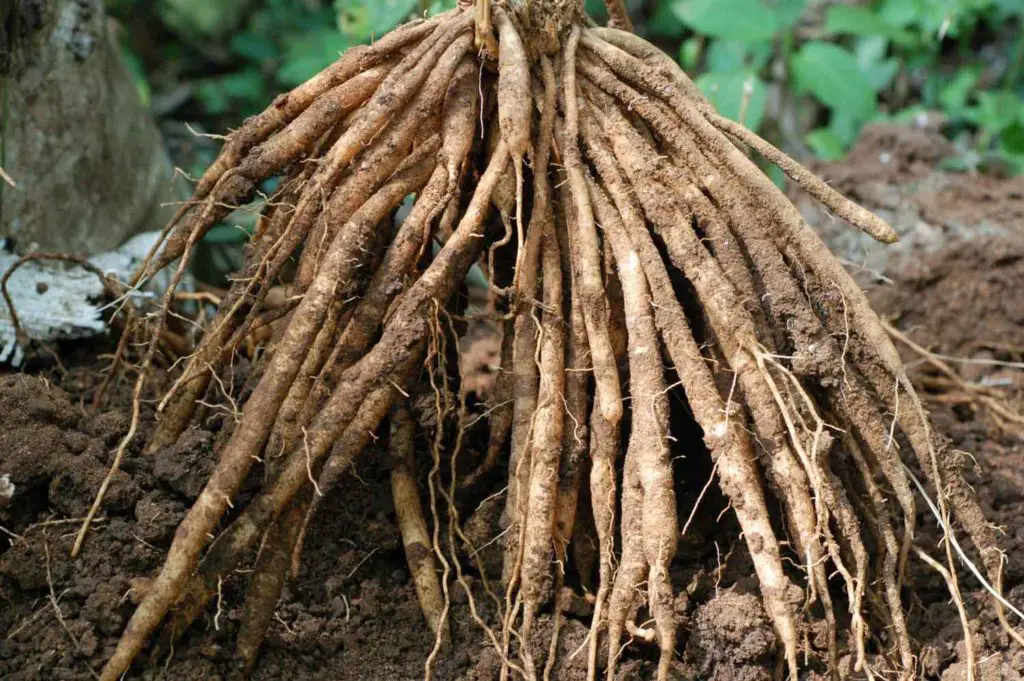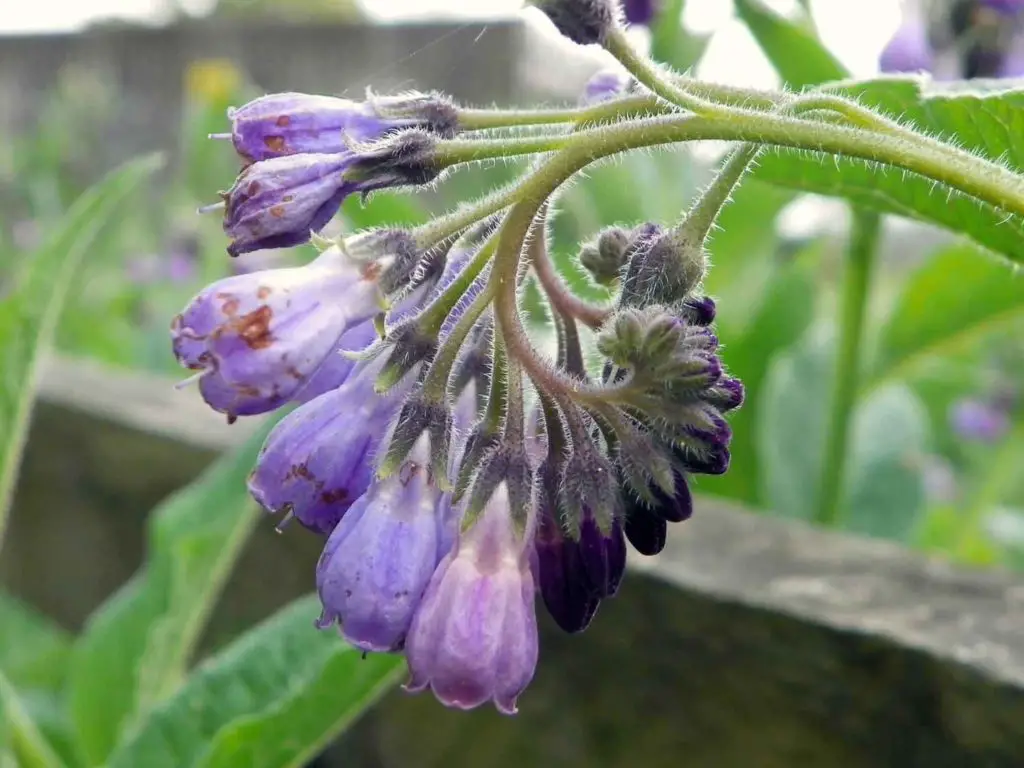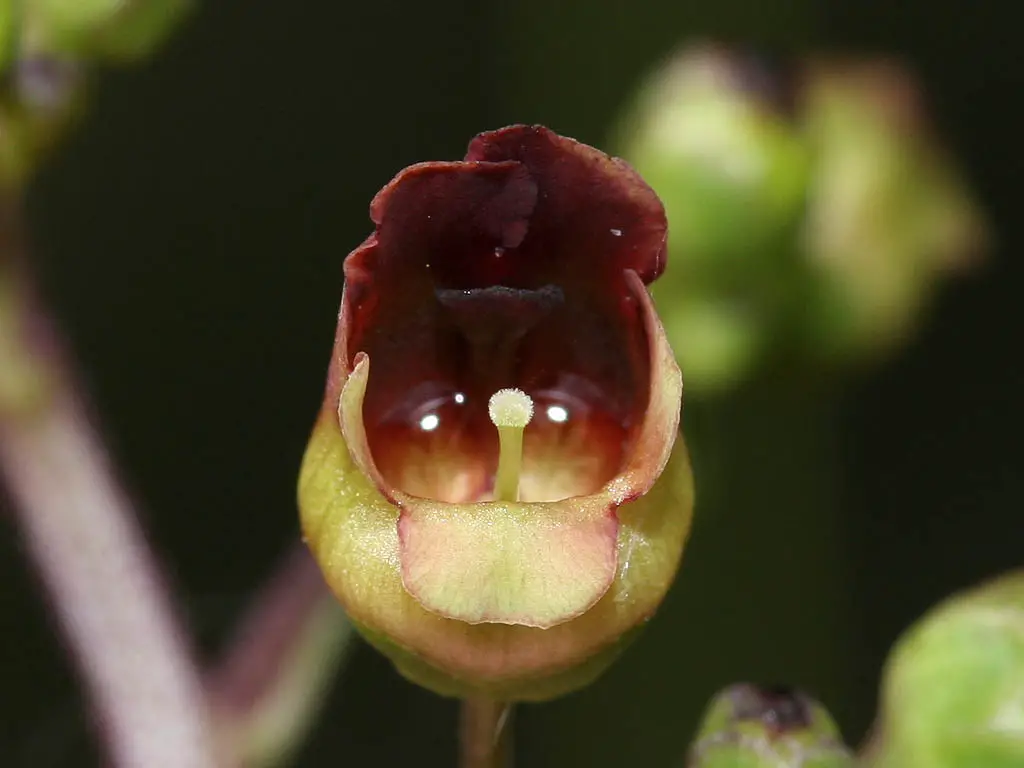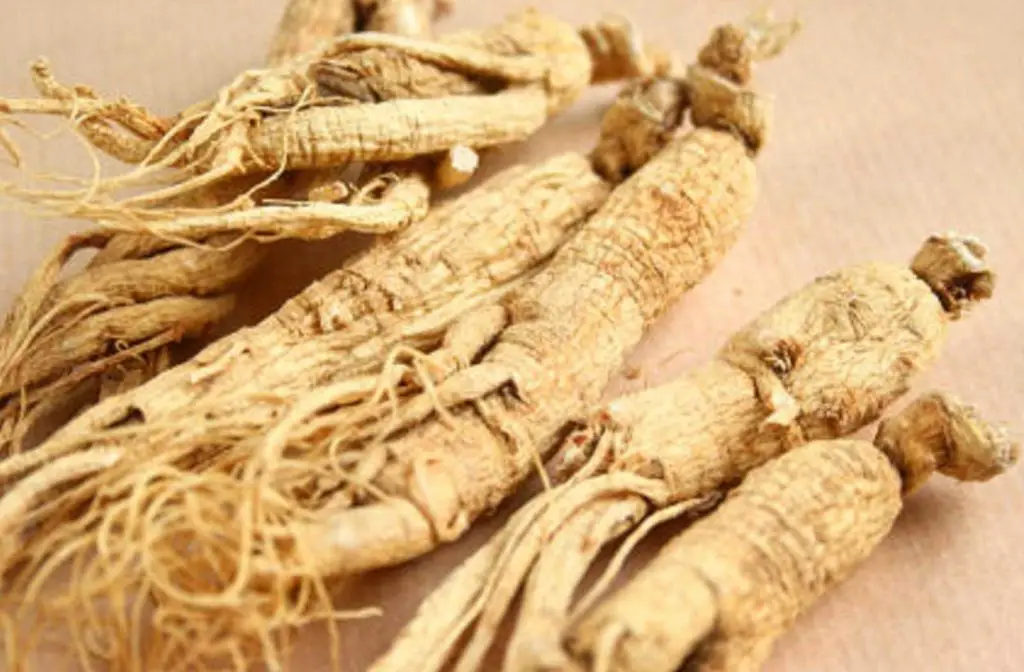What is Shatavari?
Shatavari is the popular term for a plant classified as asparagus racemosus. Even though it is also informally known as Indian asparagus, it grows in tropical areas all throughout Asia and Africa. However, it is most likely that it acquired the term “Indian” asparagus due to the fact that it is most commonly known as traditional Indian medicine as recommended by the Ayurvedic texts cited by the Indian Journal of Medical Sciences.
Classified as a woody plant, the root of asparagus racemosus is typically used for its medicinal properties. Although they share a name and a genus, asparagus racemosus is not to be confused with the vegetable commonly found in grocery stores (also classified as asparagus officinalis).
It has been traditionally used as an ingredient in folk remedies for a diverse array of ailments ranging from digestive issues to infertility. The Ayurvedic texts specifically cite it as a particularly potent herb in regards to women’s fertility garnering it the name “Shatavari” which roughly translates it to “a woman who had a hundred husbands”.
Shatavari Benefits and Uses
Breastfeeding and Lactation (Milk Production)
One of the applications that has historical precedence for Shatavari is to improve the quality and quantity of breast milk for mothers who have recently given birth. Doctors who practice ayurvedic medicine have long recommended daily doses of Shatavari to pregnant women in order to prepare their bodies to produce more milk than they would have otherwise. Many scientists attribute the positive effects of asparagus racemosus on the body’s increase in production of the hormone known as prolactin. During a case study at the Institute of Post Graduate Ayurvedic Education and Research, scientists found a correlation between the daily supplementation in the form of Shatavari powder and a production of prolactin that nearly tripled. Although clinical trials have been conducted in regards to this supposed attribute, there is no conclusive evidence at this time, as the results of all scientific research has been inconsistent.
Fertility and Testosterone
Shatavari has a long and widespread history of being utilized for the purposes of fertility and improved sexual performance. In India, it is a primary ingredient in many treatments devised for this purpose. Clinical studies have been conducted in a controlled environment that prove Shatavari’s effectiveness in this capacity for men. The results of these studies showed improved motility, a higher sperm count and an increased volume of semen in men treated with daily supplements of the herb. Shatavari was also shown to improve the regularity of sperm production. Men who have received a daily intake of Shatavari have seen an overall increase of testosterone production.
Pregnancy
Studies also show that couples who have a history of difficulty with the process of conceiving and maintaining pregnancies have twenty-five percent higher chance of carrying the pregnancy to term when they are treated with a compound containing asparagus racemosus. This is cited as a comparable rate of success to much more costly medications that require a prescription.
Digestion and Indigestion
Shatavari has a long history of being recommended by ayurvedic doctors for the purposes of easing digestion and treating digestion-related ailments. Typically, the form this treatment takes is that of the root from the plant is dried and ground into a powder. The powder is then used in a juice mixture that is said to cure gastroparesis and assists the stomach in emptying its contents in a more timely fashion. As a result, the symptoms associated with gastroparesis, such as persistent pain coming for the abdominal area, heartburn, nausea, diarrhea and vomiting, are alleviated. The juice made from the dried Shatavari root is also used to treat ulcers by alleviating the pain and assisting the body in the healing process. Shatavari has also been shown to serve as a standard digestive aid by balancing the amount of acids in the digestive process, promoting a well-balanced inflammatory reaction in the intestines and interacting with the mucous membranes within the digestive tract. It does this by soothing and coating the membranes. Shatavari also improves digestion by killing bacteria present in the digestive tract that cause colic pain, bloating and gas, such as candida bacteria. Shatavari is present in medical compounds containing ashwagandha to treat the digestive issues associated with various thyroid disorders.
Diuretic
The leaves produced by asparagus racemosus have been used as a component of tea that can assist the body in flushing out superfluous fluid when such action is necessary. Many examples of Shatavari’s use in this capacity exist in both scientific literature and anecdotal accounts.
Stress
Many physicians and consumers of various forms of Shatavari claim that it is a key component in the treatment of the tension and anxiety they experience, as a result of the difficult or high stress situations they face in day to day life. It is a known adaptogen, which means that it is both a natural substance and serves to help the body adapt to stress. This goes back to the herb’s frequent application within the philosophy of Ayurveda which states that plant life such as Shatavari is a component in an effective treatment for daily tension and stresses that individuals accumulate from their environment. In this way, a regular intake of Shatavari can decrease stress-related symptoms such as hair loss, weight loss and irregular menstrual cycles.
Weight Loss / Weight Gain
Oddly enough Shatavari can be used for both weight gain and weight loss. It’s different for each individual. The way it can cause weight loss is by reducing things like stress which are known to cause weight gain. This can have profound effect as daily stressors accumulate and affect physical and mental health. On the contrary the majority of people find Shatavari causes weight gain, which might be a benefit for people who are trying to put on weight.
Fertility and Conceiving
Living up to its title as “a woman who had a hundred husbands”, Shatavari is most commonly known as a treatment for improved sexual performance and increased fertility in women. Some of the functions Shatavari is known to improve for these purposes are increased lubrication of the uterus and reproductive tract via the mucous membranes in the female body, the development of a more hospital environment to sperm, as well as an improved ability to receive sperm, improved chances of conception and the ability to maintain a healthy development of the fetus after conception. Many treatments that contain both Shatavari and Ashwagandha are manufactured as aphrodisiacs. These combinations have several online testimonials purporting their effectiveness in this capacity. In a clinical study, where women with high risk pregnancies were treated with Shatavari, results showed that over ninety percent of the women had safe pregnancies that concluded with healthy deliveries.
PMS/Menopause
Ayurvedic physicians have long relied on Shatavari for women’s reproductive cycles. Asparagus racemosus is believed to support all aspects of the female reproductive system. For this reason, Shatavari is considered the primary tonic for uterine health in Ayrurveda. It has been shown to treat the symptoms of menopause such as vaginal dryness, irregular memory, hot flashes and irritability. A clinical trial was conducted showing that medicinal compounds that utilized Shatavari as the base, significantly alleviated symptoms such as pain, inflammation and excessive bleeding of the uterus. These findings were later published in the Indian Journal of Ayurvedic Medicine in the October through December issue of 2012.
Respiratory
Shatavari’s soothing and coating effect on the mucous membranes of the lungs is similar to the effect that it has on the mucous membranes of the digestive system. In this way, it serves to moisturize an otherwise over-heated or dry respiratory tract. There are many online accounts testifying to the effectiveness of Shatavari in this capacity.
Hormonal Imbalance
Shatavari serves as a natural treatment for hormonal imbalances in women as it increases the amount of estrogen produced by the body. This can serve to treat all ailments associated with estrogen deficiencies in women.
Estrogen
Asparagus racemosus is abundant in plant estrogens (also known as phytoestrogens). The naturally occurring hormones in plant life have been shown to be safer than its synthetically-produced counterparts, as it serves to benefit the consumer, while carrying a lower risk for uterine cancer. A regular intake of phytoestrogens has been shown to normalize the levels of estrogen in women. Some of the benefits associated with these hormones are the prevention of osteoporosis, heart disease, and breast cancer. Phyto-estrogens have the effect of increasing breast size.
Breast Growth
The augmented breast size associated with Shatavari intake has been documented in publications such as the March 2007 issue of the Journal of Ethnopharmacology, a paper that was published in a December 2009 issue of the International Journal of Pharmacy and Technology and an article featured in a May 2015 edition of the European Journal of Pharmaceutical and Medical Research.
Polycystic Ovarian Syndrome (PCOS)
PCOS is a disorder which affects women in their reproductive years. It is a syndrome that effects an estimated five to ten percent of women and is the result of an overabundance of male hormones in conjunction to a deficiency of progesterone. Symptoms include acne, abnormal increase in body hair, weight gain and fertility issues. Controlled testing on patients with PCOS resulted in data that showed that seventy-five percent of the treated patients were able to conceive and eighty-five percent were able to minimize their symptoms. Scientists believe that Shatavari is effective in this capacity as it promotes hormonal balance by managing the insulin levels produced by the body.
Shatavari Side Effects, Safety, Toxicity, and Interactions
Although Shatavari is a relatively safe herb, some precautions should be taken before adding it to one’s daily regimen. It is generally recommended that anyone interested in Shatavari consult their physician to see how it might interact with any medications that they are on or any conditions they might have. It is known to cause weight gain, periodic digestive issues and diarrhea. As it is a diuretic, those who suffer from frequent dehydration should avoid Shatavari. It also alters the amount of insulin produced by the body and the levels of blood sugar in the body. So, it is advisable with diabetes or other related conditions to proceed with caution. Individuals who take lithium as part of their daily regimen should not take Shatavari as it could result in serious side effects. Asparagus racemosus affects the body by making it less efficient at cycling lithium through its system. Those who are allergic to other plants within the asparagus species should probably avoid Shatavari.
Shatavari Dosage
For general purposes in adult females, it is typically recommended that the consumer take the supplement twice a day: once in the morning and once in the evening. Two teaspoons with warm milk are recommended, if it is taken as a powder, if it is in capsules, then two five-hundred milligram increments or a two-hundred and fifty milligram supplement of the concentrated extract for each dose. Another popular way to consume Shatavari is through a jam known as Shatavari Rasayana. This is typically a combination of dried Shatavari root, ghee and some form of sweetener. It can be eaten plain or dissolved in milk. Shatavari Rasayana is a popular alternative to those wishing to avoid the standard methods of supplementation. The recommended dosage of this form is one teaspoon twice a day like its counterparts.
Buying the Best Shatavari
When purchasing Shatavari, the consumer has a number of factors to consider. Many sources warn of potentially dangerous or unethical suppliers, so it is best to be aware of the following factors.
Traceability: It is recommended that any interested buyer ask the supplier, where their supply of Shatavari is grown. It is important that anyone selling the product is aware of the source of the active ingredients in their compound and is aware of how it is harvested. This is to ensure that the farm from which the plants were harvested were ecologically mindful, as well as diligent to treat the farmers and laborer’s who cultivate the product ethically.
Sustainability: In order to ensure that the Shatavari plant was ethically sourced, it is important to determine that it was responsibly harvested on a farm, rather than illegally gathered in the wild.
Organic and/or Non-GMO: If one wants to ensure that their entire supplement regimen is GMO free or organic, check the packaging. If it has been certified organic by the USDA, then it follows rigid guidelines to ensure no synthetic pesticides or genetically modified constituents have been used in the process of growing and cultivating the plants.
Formulations: Shatavari is made available through a variety of formulas. While the majority of these formulations serve similar functions, they specialize in specific treatments.
The different formulations and their specific applications are as follows:
Shatavari Guda/Gulam: Is typically sold in the form of a thick paste or a jam that is prepared in a jaggery base. It is sold specifically as a diuretic for the purposes of treating liver complications, gynecological conditions and issues associated with the urinary tract.
Shatavari Churna: Is primarily used for digestive issues, as it contains coolant properties that have anti-inflammatory effects on the digestive system. For its anti-inflammatory properties, it is also used to treat acne.
Himalaya Shatavari: Is commonly used for its hormone balancing properties in women which treat fatigue, alleviate menopausal and pre-menstrual symptoms, as well as improve the quality and quantity of breastmilk produced.
Shatavari Kalpa: Also promotes superior lactation, treats pain associated with menstruation and heals ulcers in the digestive tract.
How to Make Shatavari Tea
Two of the most popular ways to consume Shatavari is via teas and in the form of jam. There are multiple ways to make Shatavari tea, but the most popular way is to dissolve roughly one tablespoon of Shatavari granules in one of cup of milk. Another way to make Shatavari tea is by steeping roughly two tablespoons of the dried leaves into one cup of boiling water. However, the steeping method has a much more bitter flavor than its counterpart which comes from the dried root and has the benefit of milk to cut the bitterness.
Shatavari vs Maca
Maca is a plant that is typically harvested for its root, which is taken for hormone regulation. The primary difference between Shatavari and Maca root is that Maca is a more volatile supplement that should not be combined with phytoestrogens (such as Shatavari) as such actions have been known to interfere with the treatment and worsen symptoms. The list of ailments that can be treated by Maca root is also more limited than that of Shatavari. However, Maca root generally has a lower selling price on the market and is generally recommended for a woman trying to balance her hormones on a budget.
References:
http://www.ncbi.nlm.nih.gov/pmc/articles/PMC4027291/
http://www.ijplsjournal.com/issues%20PDF%20files/may2010/5._Mishra_et_al._.pdf
http://www.sciencedirect.com/topics/medicine-and-dentistry/asparagus-racemosus
http://www.sciencedirect.com/science/article/pii/S2222180813600493
http://onlinelibrary.wiley.com/doi/10.1002/ptr.1590/abstract;jsessionid=D9F6F84061FA5CE60BC88CC33E8639BA.f04t01
https://www.ncbi.nlm.nih.gov/pubmed/19038322
https://www.ncbi.nlm.nih.gov/pmc/articles/PMC4325056/
https://www.ncbi.nlm.nih.gov/pmc/articles/PMC3869575/






What doses should I take and how many times in a day of satavari
It depends on the ailment you’re looking to treat and the brand. I believe most brands recommend you start with 1x500mg Tablets 2x daily and go from there. It’s important to follow the manufacturers guidelines as sometimes extracts have different ratios.
Only 3 gram pure shatavari Powder with glass of water empty stomach in the morning for 3 months.
How can I consume it if I don’t want to gain weight?
I wouldn’t worry about the potential weight gain effects. Any effects Shatavari has on weight will be minimal
Dear Darcy, I have Sjögren Syndrome. Can I take shatavari?
Due to SJS being a autoimmune disease, I’d strongly suggest you talk to your doctor before taking any Shatavari, as it may boost your immune system.